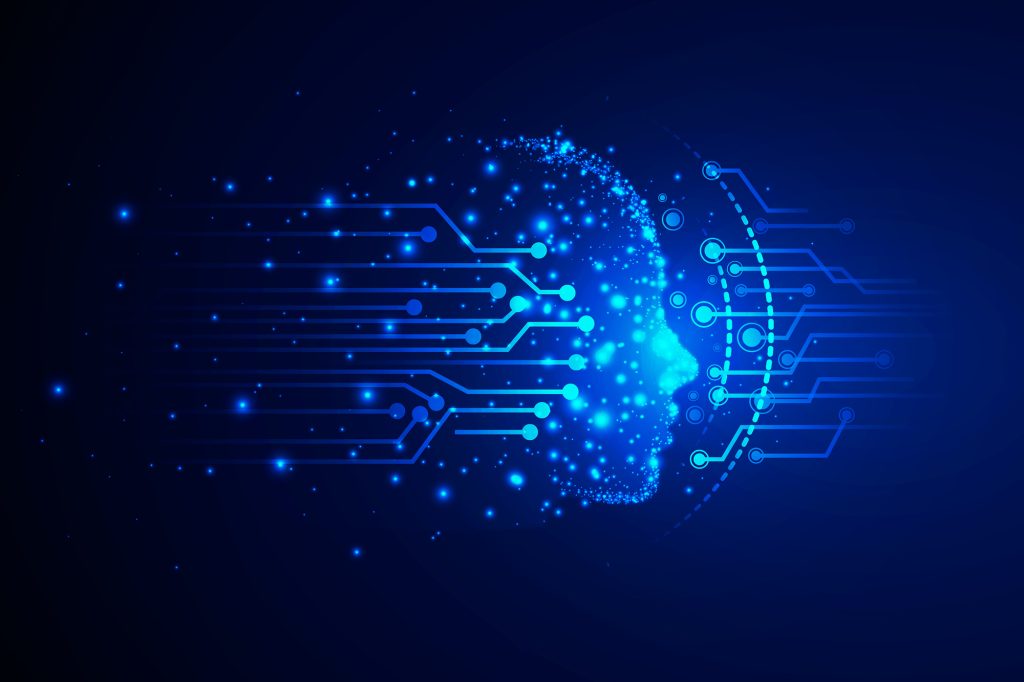BLOG POST
What is AI (Artificial Intelligence)?
Artificial Intelligence (AI) is the simulation of human intelligence by machines. It enables computers and systems to perform tasks that traditionally required human thinking, such as learning, problem-solving, pattern recognition, and decision-making. At its core, AI allows machines to process data, understand language, recognize patterns, and even adapt to new information in ways that closely mimic human cognition.

The Evolution of AI
AI has come a long way since its early conception. From simple rule-based systems in the 1950s to the advanced machine learning algorithms we use today, AI has seen significant advancements over the decades. Modern AI systems, powered by vast amounts of data and sophisticated algorithms, have the ability to learn and improve over time, a concept known as “machine learning.”
One of the most significant breakthroughs in AI has been deep learning, which uses artificial neural networks inspired by the structure of the human brain. This has made AI capable of recognizing images, translating languages, driving cars, and even beating humans in complex games like chess and Go.
Types of AI
AI can be broadly categorized into three types:
- Narrow AI (Weak AI): This is the most common form of AI, designed to perform a specific task, such as voice recognition or search engine algorithms. Examples include Apple’s Siri, Google Search, and recommendation algorithms on Netflix or Amazon.
- General AI (Strong AI): A theoretical form of AI that could understand, learn, and apply intelligence across a broad range of tasks, just like a human. This type of AI doesn’t exist yet, but it’s a long-term goal for many AI researchers.
- Superintelligence: This refers to AI that surpasses human intelligence in every field, from creativity to problem-solving. While still speculative, it’s a topic of great interest and debate among futurists and scientists.
The Impact of AI Across Industries
AI is revolutionizing industries in numerous ways, enabling businesses to innovate, streamline operations, and offer more personalized services. Here are some areas where AI is making a significant impact:
- Healthcare: AI is being used to analyze medical data, assist in diagnosing diseases, and even aid in developing personalized treatment plans. AI-powered tools are also accelerating drug discovery processes.
- Finance: AI is transforming the finance industry by detecting fraud, automating trading, and providing customer service through chatbots. Predictive analytics help in assessing risks and making informed investment decisions.
- Retail: From recommendation engines to personalized shopping experiences, AI is enhancing how customers interact with brands. Retailers use AI to optimize supply chains, manage inventory, and predict consumer trends.
- Manufacturing: AI is improving the efficiency of production lines, predicting equipment failures, and even designing new products. Robotics and AI work hand in hand to automate repetitive tasks, leading to higher precision and lower costs.
- Entertainment and Media: AI-driven algorithms curate content for users on platforms like Netflix, Spotify, and YouTube. AI is also being used to generate visual effects in films and even assist in scriptwriting.
- Marketing and Advertising: AI helps brands deliver targeted ads, analyze consumer behavior, and optimize marketing strategies. Machine learning models can predict customer preferences, helping businesses create more personalized marketing campaigns.
AI in Everyday Life
AI is already embedded in many aspects of daily life. When you ask your virtual assistant to set an alarm, use facial recognition to unlock your phone, or rely on predictive text while typing a message, AI is at work. AI-driven applications are constantly learning from user interactions to improve their functionality and offer better experiences.
The Future of AI
As AI continues to evolve, it will bring even more transformative changes across industries and societies. Researchers are working to make AI more transparent, ethical, and capable of handling increasingly complex tasks. The integration of AI with other technologies, such as the Internet of Things (IoT) and 5G, will further expand its potential, allowing for smarter cities, more efficient industries, and a higher quality of life for individuals.
However, with AI’s growth come challenges, such as data privacy, job displacement, and the ethical implications of autonomous decision-making systems. Addressing these issues will be crucial as AI continues to integrate more deeply into our world.
To be continued….
